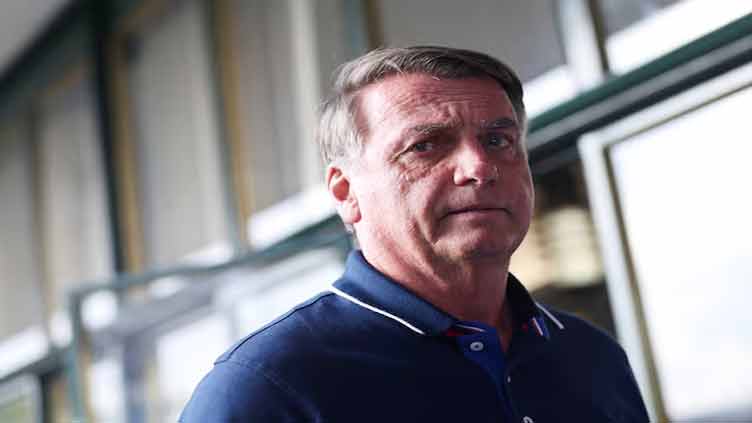Brazil Supreme Court majority votes Bolsonaro should stand trial

World
Jair Bolsonaro served as Brazil's president from 2019 to 2022
BRASILIA (Reuters) - A majority of judges on Brazil's Supreme Court reviewing charges against former President Jair Bolsonaro on Wednesday voted for him to stand trial for allegedly conspiring to overthrow the government after he lost a 2022 election.
The first three members of a five-judge panel voted to put Bolsonaro on trial. If found guilty in a trial expected later this year, Bolsonaro could face a lengthy prison sentence stretching over two decades.
In his opening remarks on Wednesday, Justice Alexandre de Moraes, who is overseeing the case, screened dramatic footage of Bolsonaro's supporters storming government buildings in violent scenes that unfolded just a week after the inauguration of President Luiz Inacio Lula da Silva in January 2023.
Bolsonaro, a far-right former army captain who served as Brazil's president from 2019 to 2022, is accused of five crimes, including an alleged attempt to violently abolish the democratic rule of law and a coup d'etat.
Moraes said that Bolsonaro led "a systematic effort to cast doubt on the electronic voting machines" used in Brazil, part of his efforts to undermine the election he lost.
The Supreme Court began reviewing charges against Bolsonaro and seven of his closest allies on Tuesday in a session that Bolsonaro voluntarily attended, sitting silently in the first row in an echo of US President Donald Trump's trial last year.
Ahead of the landmark court hearing, Bolsonaro called a beachfront rally in Rio de Janeiro, hoping to seize on Lula's waning popularity and pressure Congress to pass an amnesty bill favoring him and his jailed supporters.
The demonstration, which some allies suggested could draw more than a million backers, was widely considered a flop after two independent polling firms found that only between 20,000 and 30,000 people showed up.
Bolsonaro has insisted he will run for president again next year, despite a ruling by Brazil's Superior Electoral Court that barred him from running for public office until 2030 for his efforts to discredit the country's voting system.


